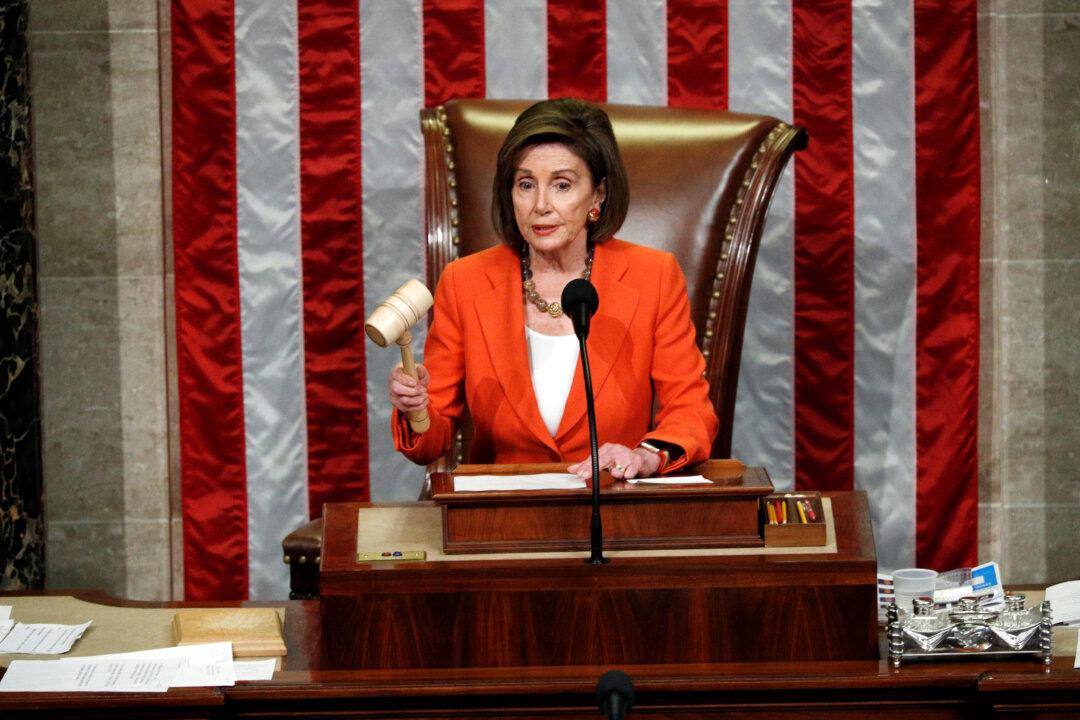House Democrats on Nov. 18 voted to back Speaker Nancy Pelosi (D-Calif.) to remain in her position for another two years, despite congressional setbacks suffered by Democrats during the Nov. 3 election that gave the caucus one of the slimmest majorities in recent memory.
Pelosi ran unopposed among Democrats to secure the nomination, but she will have to net 218 votes during the full House floor in January. After the 2018 midterm election, several Democrats broke ranks and didn’t select her. Democrats lost several seats this time around.





